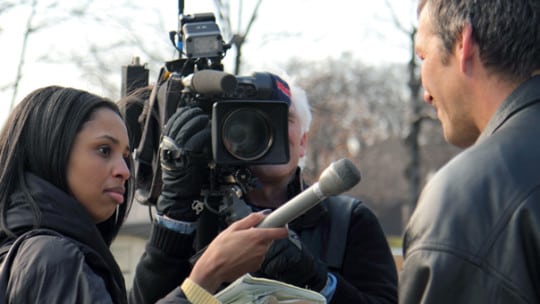
I’ve long emphasized that paying attention to the news can provide some of the best PR lessons. During this extremely busy year that’s nearly over, there were many lessons that communicators, rookies and experienced pros alike, could have learned by paying attention to the news.
Here’s a look at some teachable moments that sprang from 2017 headlines.
1. Situation: The Wall Street Journal ran a story headlined, "The Best Ways to Manage a Demanding Boss"
Lesson to remember and relevance to our business: An unscientific survey (my 30 years in the business) says demanding and threatening bosses are prevalent in PR. Young PR people should read this Jan. 17 story, which details various responses to a demanding boss. (My advice: Keep a written record of bullying tactics that your supervisor is using. Also track your contributions to the work product. These records could be useful. Most important: Don’t be afraid to respond, respectfully, to your supervisor.)
2. Situation: The New York Times reported on newsroom changes.
Lesson to remember and relevance to our business: In general, the print media is light years ahead of PR in discarding long-held tenets. Too many PR pros adhere to beliefs that have been proven ineffective: Responding ASAP and without thinking in a crisis situation, using only celebrities as spokespeople, limiting pitches to a few words and believing that negative news will be covered less if it’s issued on weekends, to name a few.
3. Situation: Central Command canceled a press conference about intelligence gained during a commando raid in Yemen because videos it thought were new were about 10 years old.
Lesson to remember and relevance to our business: 1) Never make statements to the media that you can’t back up with facts. 2) When wrong information is released mistakenly, always correct it ASAP. 3) Always verify facts before releasing information. (As a former journalist, I understood that wrong information was unintentionally provided to the media at times. But if I determined that I was the recipient of false information intentionally or through carelessness, I would never again work with the provider of the information.)
4. Situation: In a private meeting with Sen. Richard Blumenthal, then-Supreme Court nominee Neil Gorsuch called President Trump’s statements about the judiciary “demoralizing and disheartening.”
Lesson to remember and relevance to our business: Never say anything to reporters that you don’t want to see in print. Saying something is off-the-record is not a guarantee that what you've said will remain private.
5. Situation: USA Today ran a story Feb. 15 saying copy on a White House website was different than the version sent to the Federal Register. The story said documents contained grammatical errors, misspellings and other minor changes, but also referred to “inaccurate or non-existent provisions of law.”
Lesson to remember and relevance to our business: Editors have told me of, and I have seen, press releases from leading agencies filled with misspellings, grammatical mistakes and inaccurate information. Some editors automatically spike releases with grammatical errors. Should deliberately wrong information be discovered it likely would have a disastrous affect on the person providing it.
6. Situation: A New York Times story on Feb. 18 detailed how 20th Century Fox created fake news sites to promote a movie.
Lesson to remember and relevance to our business: I’ve only known two individuals who bragged about purposefully providing fake news to media, although I’m certain there were many others who did it. Don’t be among them. Trust between PR pros and their media contacts is more important than any placement. Trust will be lost forever if the deceit is discovered.
Arthur Solomon is a former journalist and SVP/senior counselor at Burson-Marsteller. A frequent contributor to PR publications, he was on the Seoul Peace Prize nominating committee. He can be reached at: [email protected]
